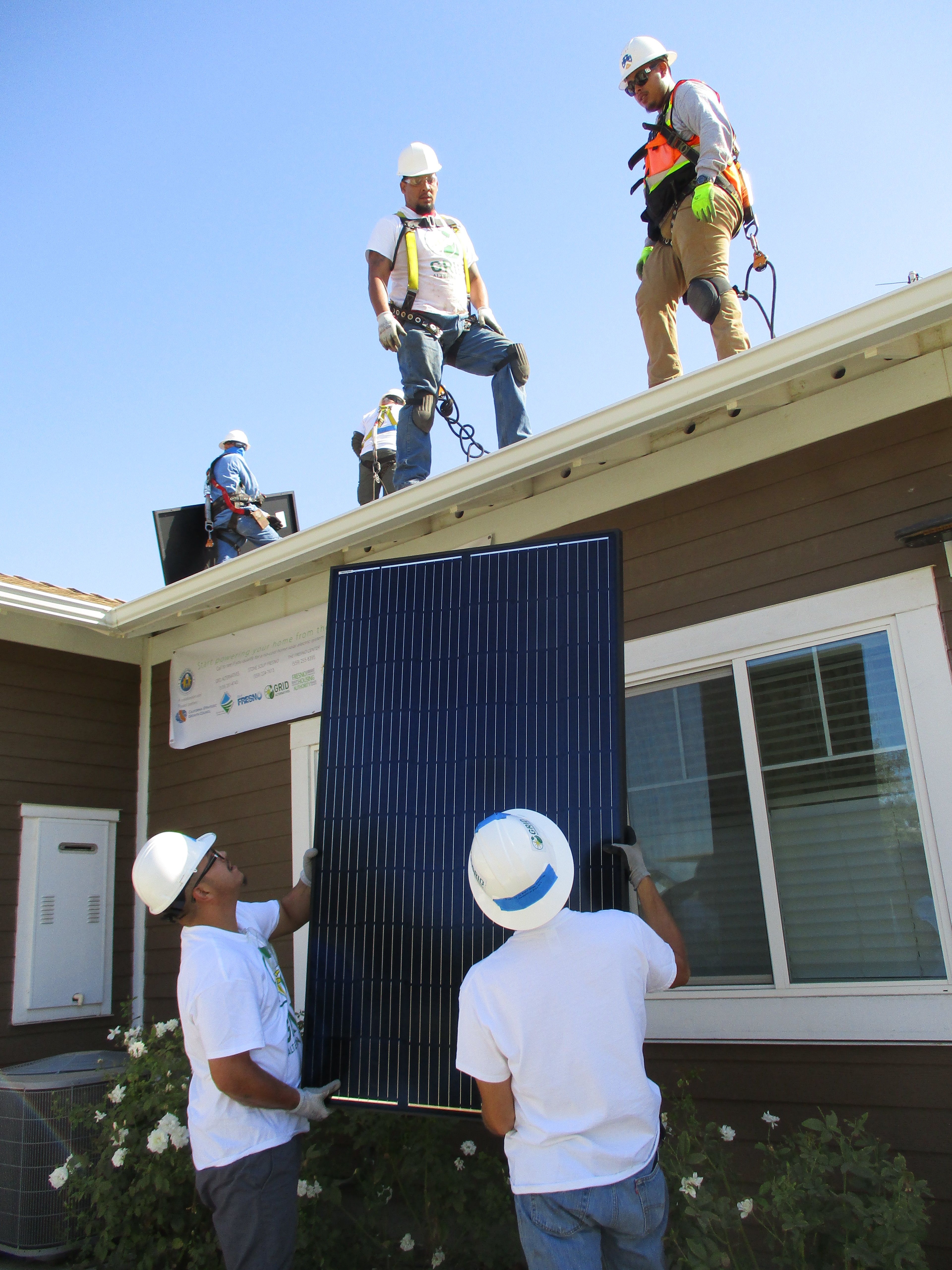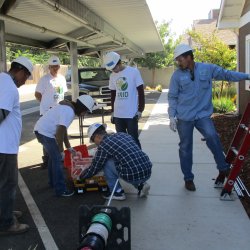Bridges at Florence was the first low income multi-family housing complex to receive solar panels to help reduce utility costs in Southwest Fresno through the Transformative Climate Communities (TCC) Implementation Grant. On September 30th through October 3rd, GRID Alternatives installed solar panels on a 35 unit seniors complex, partnering with the City of Fresno, the Fresno Housing Authority and the Strategic Growth Council (SGC).
GRID Alternatives recruited 13 volunteers as part of their workforce development and volunteer program to install a system that was over 20 kW of electrical generation, will save more than $7,000 annually with nearly $500,000 in savings over the lifetime of the system in utility costs. The volunteer installation team was made up of our Installation Basics Training (IBT) and TCC Trainees, plus trainees from our job training partner organizations, California State University – Fresno students and individual community volunteers. Volunteers are of huge value to nonprofit organization such as GRID Alternatives, the 13 volunteers that worked on Bridges at Florence have provided a total of 915 hours to GRID Alternatives installing on various projects in their time with our organization.
The Transformative Climate Communities (TCC) Implementation Grant, is a bold and historic program, with the broad goals of reducing greenhouse gas emission, improving public health and environmental benefits, and providing pathways for local economic and workforce development. It is designed to transform communities that have historically experienced underinvestment and in some cases disinvestment, communities which also face higher levels of poverty, pollution and poor air quality. This grant and partnership is dedicated to serving communities by providing reliable energy on rooftops in Southwest Fresno.
Bridges at Florence is supported by California Strategic Growth Council’s Transformative Climate Communities program with funds from California Climate Investments, a statewide initiative that puts billions of Cap-and-Trade dollars to work reducing greenhouse gas emissions, strengthening the economy, and improving public health and the environment – particularly in disadvantaged communities.


